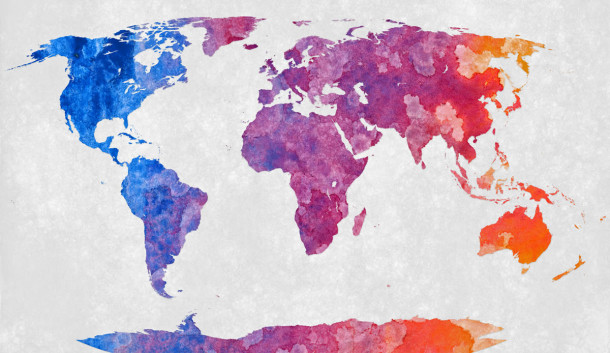
The beauty of the internet is its global nature, where it doesn’t matter that you are from the UK, US, Japan, China, Kenya, or anywhere else – you have access to much of the same content and ideas.
The companies that are truly global are the ones that are winning online – Facebook has over 1.4 billion users, WhatsApp 700 million, LinkedIn 347 million, and Twitter 288 million. All these numbers and the massive, rapid growth that these social networks have seen is because the internet opens up the global market. Whereas clubs or groups, just like companies, struggled to grow beyond national borders, now those borders can barely be seen at all.
Do you know what route your data is sent across the internet? Do you know if your personal documents in the cloud are stored in the US, or Ireland, or Germany? Is that song you’re streaming coming from a server in Sweden, London, or New York? In many instances it simply doesn’t matter, as long as the user has the data they want when they want it.
Digital content such as movies and albums first broke down national borders through piracy, but as companies like NetFlix and Spotify launched around the world, offering people access to similar catalogues of content, people have turned towards more legal means of accessing the content. And when a TV show or album is only available in another country’s catalogue, people use proxies to appear as if they resided in that country.
The content companies know full well that many of the subscribers utilise proxies to access “foreign” content, but they turn a blind eye to the regional restrictions, as they are only implemented at the behest of old media content owners such as TV studios and record labels, who still think in terms of national boundaries.
While businesses tend to be relatively quick to react to a changing landscape, legal systems around the world tend to have a more difficult time as they often vary wildly from country to country, or even state to state in the US.
For example, lotteries are treated as a legal form of entertainment and a way to raise state funds in some locations, while others view them as a vice. However, with companies such as LottoSix springing up to let anyone enter and check results from various lotteries from Europe, the US, and South America, the objections of state or national legislators are becoming less important, and local laws are being left behind.
Privacy law is another place where the global nature of the internet and how it has helped the rapid dissemination of information has left legal systems around the world looking very outdated. Recently, British judges have imposed various superinjuctions claiming to cover the whole world, ignoring the fact that they have no control of what a newspaper abroad publishes, let alone what private citizens say publicly on social media.
Data itself, as it speeds through underground and undersea cables, also poses a difficult question as to jurisdiction. If a UK person’s data is stored with DropBox at a server farm in the US, then should US authorities be able to read it? The revelations from Edward Snowden show that they do read the data, but such access is a breach of European privacy laws, putting DropBox in a difficult position.
The location and pathways of data across the internet raise some interesting questions when it comes to privacy, especially after the revelations of Edward Snowden. If I’m in the UK and my data is stored by a UK-based company with servers in the US, then which country has jurisdiction?
Laws are national, or at least regional in places like the European Union, and so we need a framework that can deal with this for privacy rights. Making sure all personal data from people of one country can only be stored within that country is not workable – but we could tag each individual data packet with jurisdictional information, so everyone knows the legal jurisdiction no matter where it is stored.
Global is here now, and its about time we start to have our laws reflect that situation.
Image by Nicolas Raymond

